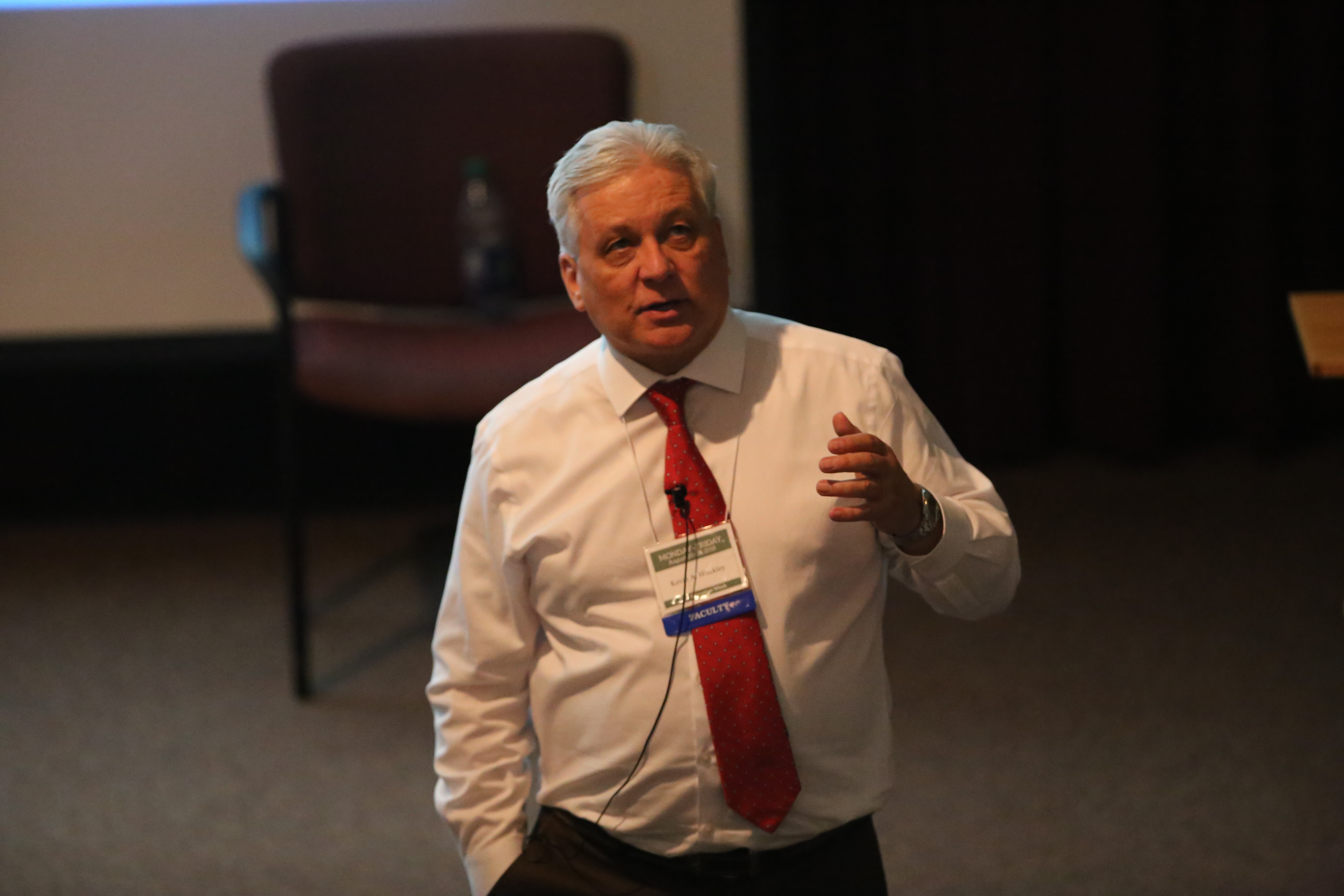
Writer and professional counselor Kevin Hinckley spoke about the difference between internal and external control and how this affects children’s upbringing at BYU Education Week on August 20.
Hinckley discussed research suggesting those who exercise self-control are less vulnerable to depression, do better in school, deal with stress better, are problem solvers, are more satisfied with their jobs, and are more oriented toward achieving goals. “These are the people who have internal control,” he said.
In order to help instill in others a greater sense of internal control, Hinckley recommended parents try a different type of teaching. He defined teaching as “the process of placing people into situations from which they cannot escape without having to think or explore.”
Hinckley pointed out many people believe they are teaching when in fact they are only telling their pupils information.
The key to effective teaching is balancing between “our need to get it done” and “their need to grow,” Hinckley said. This means that the parent’s impulse to direct, for example, needs to be balanced with the child’s need to collaborate.
Hinckley used an example of a mother who asked for his help in motivating her son do to his homework. He explained to her that wanting her son to do his homework was completely different than wanting him to do his homework without having to be reminded.
Hinckley said parents should aim to “help external kids develop internal motivation and control. Help high internal children learn faith, trust, and spiritual surrender.” Those who have internal control tend to believe they are in control of their lives and whatever happens or doesn’t happen is entirely up to them. In contrast, those with external control believe external forces have a greater consequence in their lives.
Hinckley also discussed the difference between punishment and discipline. “Ongoing punishments helps contribute to externally driven children. Discipline teaches the children responsibility for the decision and then coming up with a plan of action to change it. That’s internal,” he said.
Hinckley concluded his discussion by highlighting transformation’s importance. He read Alma 32:13, which reads:
“And now, because ye are compelled to be humble blessed are ye; for a man sometimes, if he is compelled to be humble, seeketh repentance; and now surely, whosoever repenteth shall find mercy; and he that findeth mercy and endureth to the end the same shall be saved.”




